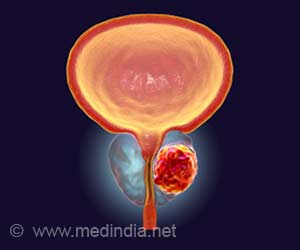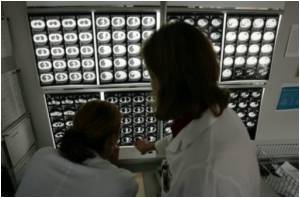Highlights
- A new isoform 2 of HSD17B4 gene may encode enzymes that inactivate androgens, essential for prostate cancer growth.
- This gene is expressed during the early stages of prostate cancer, but gets lost or suppressed in CRPC (advanced prostate cancer).
- Understanding how HSD17B4 becomes silenced in CRPC, may act as biomarker for identifying patients at increased risk of CRPC.
Dr. Sharifi and his team studied a related gene, called HSD17B4. Previous research showed that HSD17B4 encodes enzymes that inactivate androgens (male hormones). Since androgens are essential for prostate cancer growth, inactivating them should prevent cancer advancement. But these enzymes have also been observed to be more abundant in advanced prostate cancer. Therefore, until now it remained unclear whether the enzymes promote or suppress prostate cancer.
Therapy for advanced prostate cancer--called Androgen Deprivation Therapy (ADT), or chemical castration--blocks cells’ supply of androgens, which they use as fuel to grow and spread. While ADT is successful early on, it eventually fails, allowing cancer to progress to a lethal phase called castration-resistant prostate cancer (CRPC)..
"We are hopeful that these findings will lead to more precise and effective treatments for prostate cancer," said Dr. Sharifi. "If men lack a specific isoform of this gene, we may be able to personalize their therapy."
To determine HSD17B4’s role in the transition to CRPC, Dr. Sharifi’s team analyzed its expression in tissue from patients with healthy prostates, localized prostate cancer, and CRPC. They found that HSD17B4 expression levels were relatively the same in benign and local prostate cancer tissue, but significantly reduced in CRPC tissue, suggesting that HSD17B4 does play a role in preventing progression to CRPC.
The team also validated their findings in a preclinical model. Their findings suggest that lack of isoform 2 leads to advanced CRPC. Additional research will be important to determine how HSD17B4 becomes silenced in CRPC and whether it may be used as a biomarker for patients at risk of dying from prostate cancer.
Dr. Sharifi holds the Kendrick Family Chair for Prostate Cancer Research at Cleveland Clinic and co-directs the Cleveland Clinic Center for Excellence in Prostate Cancer Research. He is also a member of the Glickman Urological and Kidney Institute and Taussig Cancer Institute. He has received numerous national awards for his work in uncovering the link between HSD3B1 and CRPC, including the Clinical Research Forum’s Top 10 Clinical Research Achievement award in 2017.
Source-Eurekalert
















